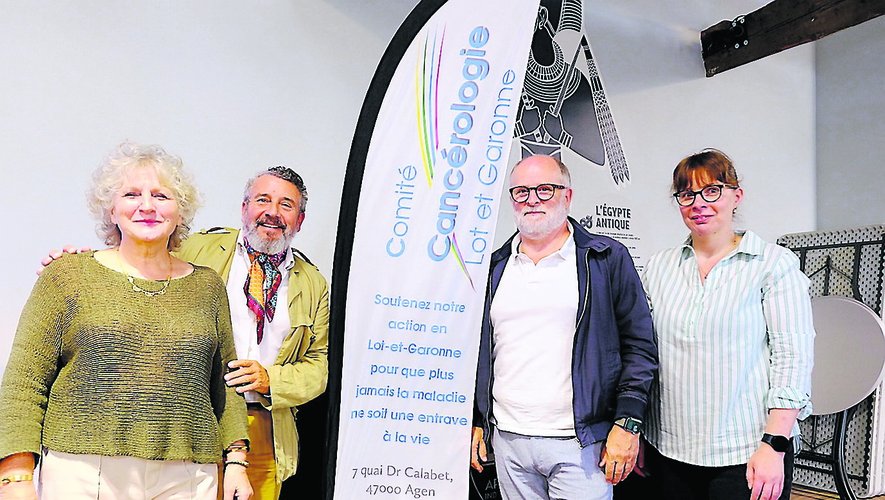The Lot-et-Garonne Cancer Committee had organized a conference-debate led by doctors as part of the national cervical cancer awareness and prevention campaign called Green June.
We will remember from the various communications, an immense message of hope: a vaccine exists against cancer of the cervix. It has been used for more than 10 years on millions of people and has already completely eradicated this cancer in various countries from Australia to Canada via Sweden. By decision of the President of the Republic, at the start of the next school year, all 5th year volunteer students (11/12 years old) will be able to be vaccinated free of charge. The objective is to eradicate this cancer in France as well, which still claims more than a thousand victims out of the 3,000 new cases identified each year. Vaccination can be proposed until the age of 20 but is not therapeutic and must be injected (in 2 to 3 doses) ideally before the first sexual intercourse.
Vaccination for girls and boys
Cervical cancer is caused by viruses called human papillomavirus (HPV). The presence of this virus is a tracer of sexual activity. It should be noted that the use of a condom does not protect against this virus responsible for other cancers, which explains why the vaccination of young boys is also strongly recommended. In addition to vaccination, screening as early as possible for any precancerous lesions in the cervix is part of the medical arsenal.
Carriers of the human papillomavirus are extremely common (70% of the population) and this, from adolescence. However, precancers are only very rarely detected before the age of 30. It is between these two age groups that vaccination provides the maximum guarantee that the body will become immunized against the harmful effects of the virus. Screening examinations are therefore useless before the age of 25, which, moreover, should not prevent young women from consulting their gynecologist once a year and even without any symptoms. “We must also avoid any amalgamation with uterine cancer of a completely different nature,” said Gérôme Descargues, gynecologist.
Regular screening in the absence of vaccination
Céline Garziera of the Regional Cancer Screening Coordination Center (CRCDC) recalled, for her part, “that in Lot-et-Garonne only 60.6% of women are screened. From the age of 45 there is even a decrease of participation and yet these women are right at the age when it is imperative to get tested.” Every three years for women between 25 and 29 years old. Every five years for women aged 30 to 65. Along with colorectal and breast cancers, cancer of the cervix is part of the national organized screening programs but in the latter case, the woman only receives an invitation if she has not followed up. “Cervical cancer is the fourth cause of death among women worldwide,” said Dr. Olivier Bernard, oncologist, before insisting: “Vaccination must be promoted despite reluctance.”
An evening rich in lessons which could be welcomed by the President of the Lot-et-Garonne Cancer Committee, Michèle Bauvy, who took the opportunity to recall the role of her association: “Our vocation is to support patients throughout the course of care: support with administrative procedures, proposal for physical activity, home help, etc. In the medium term, we hope to be able to create the Maison des patients, a place of accommodation in order to avoid the fatigue of daily journeys when care is spread out over several consecutive days.

